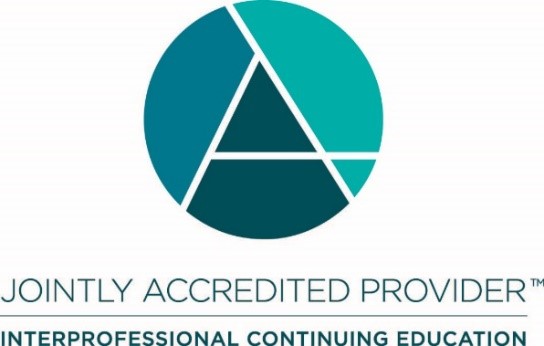Archived Monthly Oncology Tumor Boards: A Multidisciplinary Approach to Individualized Patient Care - Lung Cancer
New Treatments for Metastatic Lung Cancer
Immunotherapy/chemotherapy combination regimens are now recommended in the NCCN Guidelines for select patients with metastatic NSCLC, and preferred regimens are now also recommended. New pathways have been added to the NCCN Guidelines outlining different options for sequencing therapy for patients who have and have not received combination therapy with immunotherapy/chemotherapy and targeted therapies. Immune-related adverse reactions may occur with use of immunotherapy regimens; therefore, clinicians need to know how to manage these adverse reactions.
Target Audience
This program is designed to meet the educational needs of physicians, nurses, pharmacists, and other health care professionals who manage patients with cancer.
Learning Objectives
Following this activity, participants should be able to:
- Recommend appropriate immunotherapy +/- chemotherapy regimens for patients with metastatic NSCLC based on biomarker status and histology.
- Describe the adverse events that may occur with immunotherapy/chemotherapy regimens that are recommended for metastatic NSCLC.
- Describe the different options for sequencing first-line and second-line therapy in patients with metastatic NSCLC.
Sandip P. Patel, MD
UC San Diego Moores Cancer Center
Grace Y. Lin, MD, PhD
UC San Diego Health Department of Pathology
NCCN Medical Education Disclosure Policy
It is the policy of NCCN that every 12 months, all faculty, moderators, activity planners and all internal planning staff participating in NCCN continuing education activities are expected to disclose any financial relationships with a commercial interest as defined by the Accreditation Council for Continuing Medical Education (ACCME) Standards for Commercial Support. In addition, all faculty presentations have been reviewed for adherence to the ACCME’s Standards for Commercial Support (the provider develops activities/educational interventions independent of commercial interests [SCS 1, 2 and 6] by experts on the topics).
Per the ACCME Standards for Commercial Support, individuals who do not disclose relevant financial relationships will be disqualified from involvement in the CE activity as a content developer, planner, or presenter. A complete list of individuals’ relationships with external entities is available upon request.
Definitions
NCCN continuing education considers financial relationships to create a “conflict of interest” when an individual has both a financial relationship with a commercial interest and the opportunity to affect CE content about the products or services of a commercial interest with which he/she and/or a spouse or partner has a financial relationship.
NCCN continuing education considers “relevant financial relationships” as financial relationships in any amount occurring within the past 12 months that create a conflict of interest. NCCN does not set a minimal dollar amount for relationships to be significant. Inherent in any amount is the incentive to maintain or increase the value of the relationship.
Faculty Disclaimers
All faculty for this continuing education activity are competent in the subject matter and qualified by experience, training, and/or preparation for the tasks and methods of delivery.
Faculty presentations may include discussion of off-label use. Faculty will disclose that the use in question is not currently approved by the FDA per the product labeling.
Faculty Disclosures
The faculty listed below discloses no relevant financial relationships:
Grace Lin, MD, PhD
The faculty listed below disclose the following relevant financial relationships:
Sandip Patel, MD
AstraZeneca Pharmaceuticals LP: Advisory Board
Bristol-Myers Squibb Company: Advisory Board
Eli Lilly and Company: Advisory Board
Novartis Pharmaceuticals Corporation: Advisory Board
NCCN Staff Disclosures
The NCCN Activity Planning staff listed below discloses no relevant financial relationships:
Melissa Esplen; Mark A. Geisler; Kristina M. Gregory, RN, MSN, OCN; Kristin Kline Hasson; Rose Joyce; Karen Kanefield; Lisa Perfidio, MS; Shannon Ryan, CMP; Kathy Ann Smith, CHCP; Sarah Weinstein
The NCCN Clinical staff listed below discloses no relevant financial relationships:
Miranda Hughes, PhD

In support of improving patient care, National Comprehensive Cancer Network (NCCN) is jointly accredited by the Accreditation Council for Continuing Medical Education (ACCME), the Accreditation Council for Pharmacy Education (ACPE), and the American Nurses Credentialing Center (ANCC), to provide continuing education for the healthcare team.
Physicians
NCCN designates this enduring material for a maximum of 1.0 AMA PRA Category 1 Credit™. Physicians should claim only the credit commensurate with the extent of their participation in the activity.
Nurses
NCCN designates this educational activity for a maximum of 1.0 contact hour.
Pharmacists
NCCN designates this knowledge-based continuing education activity for 1.0 contact hour (0.10 CEUs) of continuing education credit. UAN: JA4008196-0000-20-037-H01-P
Physician Assistants
NCCN has been authorized by the American Academy of PAs (AAPA) to award AAPA Category 1 CME credit for activities planned in accordance with AAPA CME Criteria. This activity is designated for 1.0 AAPA Category 1 CME credit. Approval is valid until 3/18/2021. PAs should only claim credit commensurate with the extent of their participation.
Case Managers
This program has been pre-approved by The Commission for Case Manager Certification to provide continuing education credit to CCM® board certified case managers. The course is approved for 1.0 CE contact hour. Activity Code: I00041037; Approval #: 200135945
Available Credit
- 1.00 AAPA Category 1 CME credit
- 1.00 ACPE contact hours
- 1.00 AMA PRA Category 1 Credit™
- 1.00 ANCC contact hours
- 1.00 CCM clock hours
- 1.00 Participation
Required Hardware/software
To complete this activity, users will need:
- A device with an Internet connection and sound playback capability
- One of the two latest versions of Google Chrome, Mozilla Firefox, or Safari
- Internet Explorer is no longer supported
- Adobe Reader or other PDF reader software for certificate viewing/printing

 Facebook
Facebook X
X LinkedIn
LinkedIn Forward
Forward